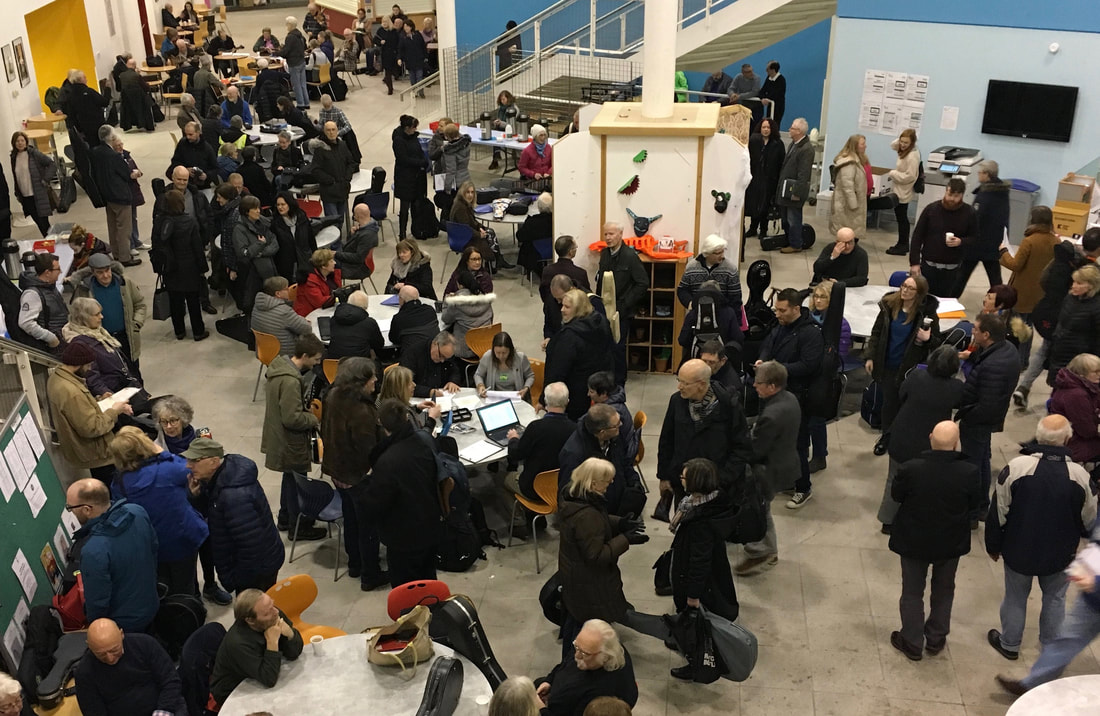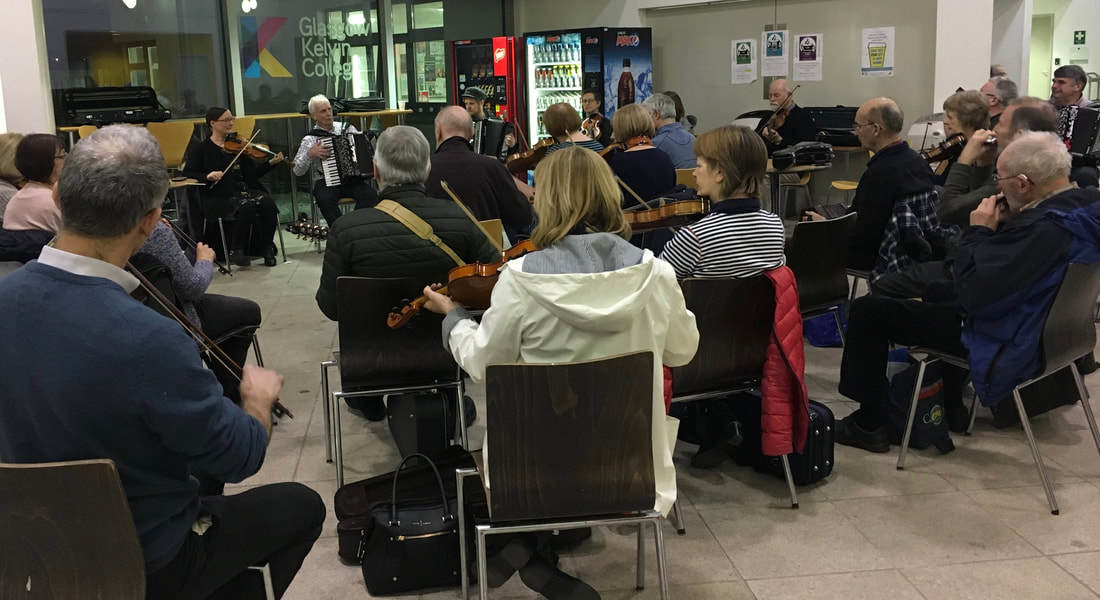|
What better way to understand the benefits of informal and non-formal learning than to experience it first-hand. This is one reason why I registered for mandolin and fiddle group lessons through the Glasgow Fiddle Workshop (GFW). Using traditional Scottish music, GFW offers group lessons for a variety of musical instruments, including fiddle, accordion, mandolin, guitar, banjo, bodhran, whislte, harmonica, small pipes and song. The other reason why Iʼm taking lessons at GFW is that I want to feel part of a community in Glasgow and playing music together always opens that door for me. The other reason is that I want to feel part of a community here and playing music together always opens that door for me. The first night of classes teamed with enthusiasts - many of whom had taken a "Try Your Hand at ... " (mandolin, fiddle, accordion, harp and whistle) workshop at the Celtic Connections Festival. What was so refreshing to see that first night at GFW was the host of mature or seasoned adults in attendance. There were refreshments with a donation cup, live music playing in the background, and people chatting away. The feel in the room was welcoming, warm and inclusive. All of the class instructors teach music by ear. According to the GFW website, "Scottish traditional music is part of an oral tradition which has been passed down over hundreds of years. Many of the tutors learned to play this way and find this method works really well when teaching groups of people. GFW are keen to preserve this tradition and have made it part of the GFW ethos." As a classically-trained pianist, I lost the confidence to improvise and create my own music because I played what was on the sheet music without deviating. Now, years later I don’t want my students to have the same experience that I had. By having the full skill set to integrate informal learning practices, I want to help students navigate both classical and popular music worlds by reading music and playing by ear; performing in an orchestra and rock band and integrating technology. The GFW tutors encourage students to move freely among the different ability-leveled classes not only on the first night, but any night. Whatʼs most important is that learners find a learning context that suits them. Generally one or two pieces are taught each week. Students can record the tutors to help with their practice at home and can access additional repertoire on the GFW website, which includes both sheet music and an audio recording. In addition to the weekly sessions at Glasgow Kelvin College, GFW holds these sessions at local pubs: slow jams twice a month, very slow jams once a month, and more advanced sessions every Monday after class. And a half before each class on Mondays or Wednesdays, sessions are held in the commons a half hour before (see photo below). I am looking forward to this part of my research project. Playing by ear has always terrified me, yet I know itʼs a skill that will make me a more versatile and confident musician. I canʼt think of a better place to try it. The folks at GFW are encouraging, humorous and genuinely interested in creating community through music-making. Below is a short video introducing the work of GFW.
1 Comment
Marie McNeill
3/17/2023 06:35:11 am
Hi, Do you do workshops for Clarsach for Adults?
Reply
Leave a Reply. |
Lorrie HeagyThis is a personal blog, sharing my experiences living in the UK from January - June 2019 as a Fulbright Distinguished Award in Teaching scholar. This blog is not an official site of the Fulbright Program or the U.S. Department of State. The views expressed on this site are entirely my own and do not represent the views of the Fulbright Program, the U.S. Department of State, or any of its partner organizations. Archives
July 2019
Categories
|


 RSS Feed
RSS Feed
